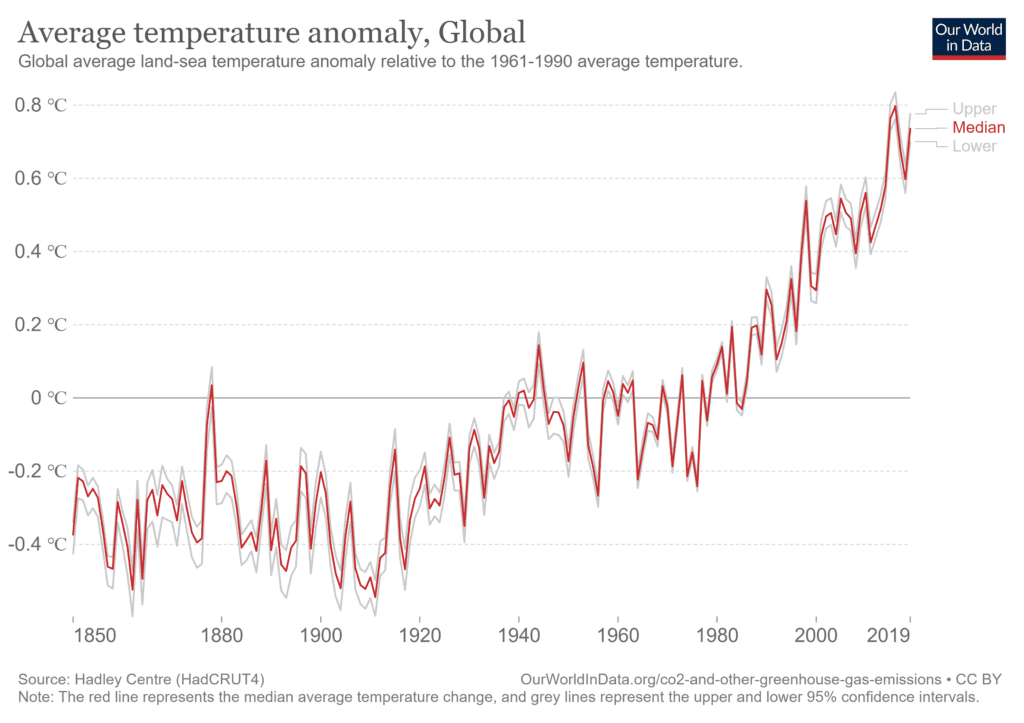
The Intergovernmental Panel on Climate Change (IPCC) has released its first climate report showing that human activity is ‘unequivocally’ the cause of global warming. On average global surface temperatures between 2011 and 2020 are 1.09o Celsius higher than the average temperature between 1850 and 1900 (the ‘pre-industrial temperature’, as indicated in the following graph). The past five years have been the hottest since 1850. ‘This rate of warming is unprecedented in at least the last 2,000 years’.
The good news is that we are not yet past the point of no return. Acting today will make a difference. The report sets out various outcome scenarios, depending on what actions we take over the next few years.
If we are able to half global greenhouse emissions (36.44 billion tonnes in 2019) by 2030 and achieve net zero greenhouse gas emissions* by 2050, the average global temperature is forecast to increase by 1.6oC above the pre-industrial temperature by the end of this century, but to fall back to 1.4oC by 2100. This is the best-case scenario, but without change on our part global warming will exceed 2oC before the end of the 21st century. Even with drastic cuts to greenhouse gas emissions global warming is expected to exceed the 1.5oC limit set by the Paris Agreement between 2041 and 2060.

With regard to the oceans, the report states that global sea levels have risen faster since 1900 than over any other century in the past 3,000 years. Additionally, the rate at which the sea level is rising is three times faster than in 1970. The global ocean is reported to have ‘warmed faster over the past century than since the end of the last deglacial transition around 11,000 years ago’ and the report warns that the Artic is ‘likely to be practically free’ of sea-ice during September at least once before 2050.
Climate change is affecting ‘every inhabited region across the globe’ with some regions experiencing ‘increases in agricultural and ecological droughts’. The report also gives evidence of observed changes in extremes such as heatwaves, heavy precipitation, droughts, and tropical cyclones, and, in particular, their attribution to human influence.
Achieving net zero greenhouse gas emissions by 2050 begins by reducing emissions as much as possible and utilising clean technologies. Thereafter, unavoidable emissions must be counterbalanced though methods such as carbon capture and storage, carbon offsetting, and planting trees. Professor Piers Foster of the University of Leeds and co-author of the report said that ‘if we are able to achieve net zero greenhouse gases, we should eventually be able to reverse some of that temperature increase and get some cooling’.
*Net zero greenhouse gas emissions is achieved when the amount of greenhouse gas being emitted equals the amount of greenhouse gas being removed from the atmosphere. Hence, the net impact of the emissions is zero.


